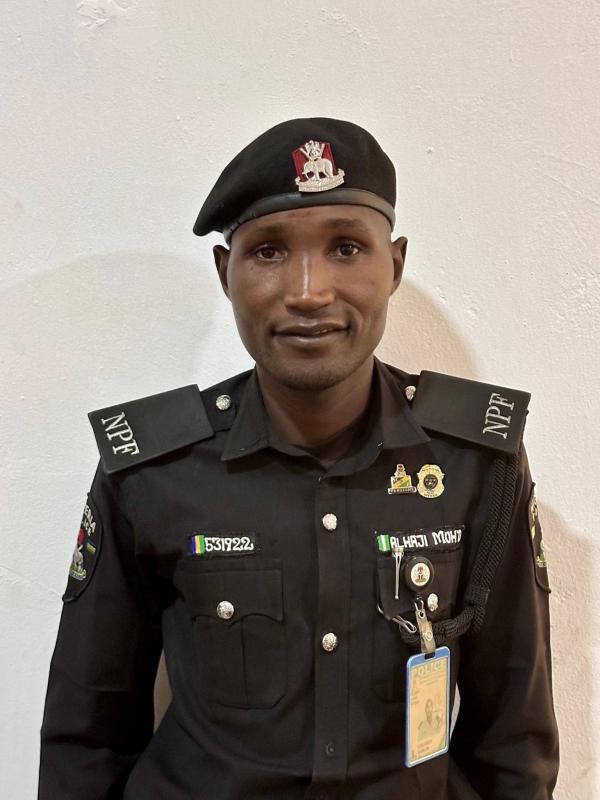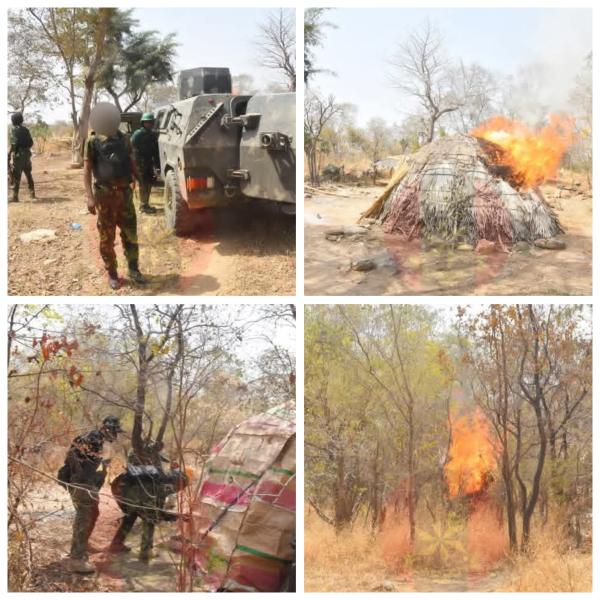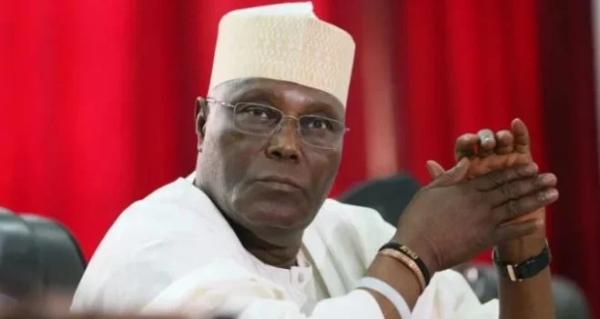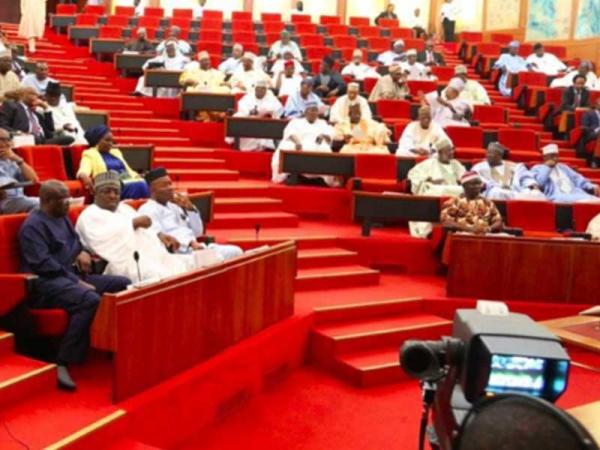
Military authorities have retired the former General Officer Commanding the 7 Division of the Nigerian Army, Maiduguri, Maj. Gen. Abubakar Mohammed.
Investigations by our team revealed this on Tuesday just as the Nigeria Labour Congress, the Trade Union Congress and human rights lawyers pleaded for the pardon of 12 soldiers who were sentenced to death by a military court on Monday.
The soldiers, who had on May 14, 2014 fired shots at Mohammed, in Maiduguri, were convicted for mutiny and other offences such as insubordination.
Investigations revealed that Mohammed was retired after he was recalled to the Headquarters of the Nigerian Army without posting for months after the soldiers’ attempt on his life.
It was gathered from a top military source in Abuja that the Army authorities quietly retired him last month.
The source said, “The Maj. Gen. has been retired; you don’t expect that to be made public; issues of retirement especially in the military are confidential. The man was at the Army headquarters for some time. He was awaiting posting then but he was eventually retired about a month ago.”
Meanwhile, the NLC, TUC and human rights lawyers have urged the Presidency and the Army Council chaired by the Minister of Defence to prevail on the military authorities to spare the lives of the 12 soldiers.
The lawyers are three Senior Advocates of Nigeria–Olisa Agbakoba, Femi Falana and Sebastian Hon – as well as Fred Agbaje and Monday Ubani.
In fact, Agbakoba, who flayed the judgment threatened to go to court to seek justice for the convicts.
He said that the process through which the court martial passed the sentences on the soldiers was unconstitutional.
The SAN, who maintained that the composition of the court violated the principle of natural justice, said he had asked his lawyers to approach the convicts for the purpose of lodging an appeal against the military authorities.
He said, “The court martial system is totally unconstitutional. They (soldiers) have the right to go to court and appeal the judgment. Actually, I have asked my lawyers to approach them and afford them our services to lodge an appeal.”
Agbakoba submitted that the offence for which the soldiers were tried and found guilty was undefined. He stated that Section 38(12) of the 1999 Constitution stipulated that all offences must be defined.
He said,“I have represented a number of soldiers at court martial. In particular, I represented Gen. JOJ Okulagu and my point at the court martial was that a process that allows the commander to appoint the investigator, the court martial president, members and the judge advocate is clearly contrary to all principles of natural justice.
“The basis of justice is that everybody who has the power to decide has a duty to act fairly. Without prejudice to the offence, whether the person is guilty or not, he is entitled to a fair trial.
“The Army Act that defines the work for the court martial system is unconstitutional because the basic offence contained in the Army Act is that you are charged for an offence said to be prejudicial to service discipline.
“That is what the law says–conduct prejudicial to service discipline. But conduct prejudicial to service discipline is an undefined offence contrary to Section 38(12) of the Constitution and the court has said that offences must be defined.”
Falana and Hon, who acknowledged the severity of the offences the soldiers were accused of, said pardoning them was necessary in view of the circumstances informing their action.
Falana said the soldiers were erroneously charged under Section 52(1) of the Armed Forces Act Cap A 20 Laws of the Federation of Nigeria, 2004 as Mohammed whose car was shot at by the soldiers was not killed.
“The soldiers were charged with attempted murder which does not attract death penalty. In the circumstance, the 12 convicts should have been charged under Section 52(2) of the Armed Forces Act which provides for life imprisonment,” he said.
The human rights lawyer called on the Army Council not to confirm the verdict but to commute it to imprisonment.
Falana said, “Before the incident, the soldiers at the Maimalari Cantonment had complained of insufficient ammunition, food and allowances. The visit of the GOC was said to have coincided with the arrival of the corpses of soldiers killed in an ambush in Chibok, Borno State on the night of May 13, 2014.
“It was the tragic situation which reportedly infuriated the soldiers. Having investigated and confirmed the circumstances which led to the mutiny in question, the military authorities removed the GOC.
“In the light of the foregoing, I urge the Army Council not to confirm the death sentences passed on the 12 soldiers but commute same to imprisonment in the interest of Justice. The facts and circumstance of the mutinous act of the convicted soldiers should be taken into consideration.
“However, if the death sentence of the Maiduguri 12 is confirmed by the Army Council, the convicted soldiers are advised to take the case to the Court of Appeal which is likely to follow its decision in the case of Yussuf & 21 Ors v Nigerian Army (2003) 36 WRN 68 wherein the sentence of life imprisonment passed on the appellants who had rioted at the Cairo Airport in Egypt was quashed.”
On his part, Hon said despite the charges, Jonathan should exercise his power under section 175 of the 1999 Constitution to grant prerogative of mercy to them.
He said, “Mutiny is a serious crime in the military in the world over. If it is tolerated, it will lead to serious chaos and breakdown of law. In fact, it will even lead to the overthrow of the central government.
“I say this with every sense of responsibility, taking into account the security condition in the country and the very obvious fact that soldiers are daily crying that they have not been well kitted to fight the Boko Haram insurgents.
“In spite of that, however, the way the young men took the law into their hands by shooting at the car of their commander should not be tolerated under any circumstance.
“Having said that, I will still say that the President should exercise his prerogative of mercy under section 175 of the constitution to pardon them with a strong warning that he will not pardon any other person who does that. I say that because the morale of the military personnel on the ground should not be dampened.”
Agbaje said if the soldiers were not pardoned, the judgment could dampen the morale of others currently fighting insurgents in the country.
Agbaje also explained that the Armed Forces Decree did not stop the convicts from appealing against the judgment at the Court of Appeal.
He said, “They can go to the Court of Appeal where the judgment of the court martial will be subjected to judicial scrutiny and review. Nothing in the Armed Forces Decree can override the clear provisions of the 1999 Constitution particularly sections 6 and 36, dealing with judicial powers and fair hearing.
“It is not too late in the day if the issue of prerogative of mercy is also considered by the President now that the court martial is now functus officio.
“The president should come in to exercise his prerogative of mercy. If the president does not intervene through clemency it will dampen the morale of other soldiers in the battle field,” he added.
Ubani, who expressed concern on whether the soldiers had been given fair hearing as proceedings of martial courts were “conducted in secrecy,” insisted that the soldiers had a right of appeal.
He said, “The soldiers still have the right of appeal. Even if the Court of Appeal goes ahead to agree with the tribunal, I am still of the opinion that the approving authority must look at this case once again. Under what circumstance was this mutiny committed.
“These people had alleged that they were not properly equipped. They had alleged that they were not properly taken care of.”
Also, the NLC, through its General Secretary, Dr. Peter Ozo-Esan, said it could only appeal for clemency since the military had its own judicial process.
It said, “You know the military all over the world has its judicial process. We believe that the sentences are still awaiting the approval of the Army Council. It is when that process is completed that the full details and the circumstances would be taken into consideration. Where it is possible, some degree of clemency should be shown.We therefore appeal for some degree of clemency by the Army Council.”
The TUC on its part faulted the death sentence on the soldiers, describing it as a special gift to the Boko Haram.
Its President, Bala Kaigama, recalled that the soldiers were protesting internal sabotage in the ongoing counter- insurgency operation in the North -East.
He also faulted the court’s decision to describe the actions of the soldiers as mutiny as attempts to commit murder and insubordination.
Kaigama challenged the military to look inwards and fish out the collaborators of the Boko Haram insurgents for punishment.
He said, “We would also want to remind the Federal Government and the military leadership that in as much the congress will not encourage revolt or disobedience to military authority, we will also not fail to reject and condemn the death sentence passed by the court martial on 12 soldiers protesting against the internal sabotage of the military in the ongoing war against the Boko Haram sect in the North Eastern part of the country.
“We wonder why and how such a protest against sabotage could suddenly be termed: criminal conspiracy, mutiny, attempt to commit murder (shooting of the vehicle of the GOC); insubordination to a particular order and false accusation by the president of the Court Martial, Maj. Gen. C.C. Okonkwo.
“To us, the issues are clearly more and the congress makes bold to say that the approach adopted on the issue that is already at the public domain is very incorrect.”
He called on the Federal Government and the military to look into the grievances of the soldiers, stressing that the country could not afford to lose more of them now.
A human rights group, the Coalition Against Corrupt Leaders, warned that the sentence passed on the soldiers might spell doom for the military.
Its Chairman, Debo Adeniran, said that such judgment was ill-timed as it might dampen the morale of soldiers at the war front.
Adeniran said, “It was done at a wrong time. If they are found guilty at all, such pronouncement ought not to have been made at this material time when our soldiers are in short supply of motivation for the expedition they are forced to engage in.
“It will only dampen their spirit, because they know what led to the mutiny. It was a statement of frustration from those guys because they already knew well that the outcome of it might not be favourable.
“Those who are still in the war front will not be motivated by such judgment at this material time and that may now spell doom for the Nigerian military rank.”






















